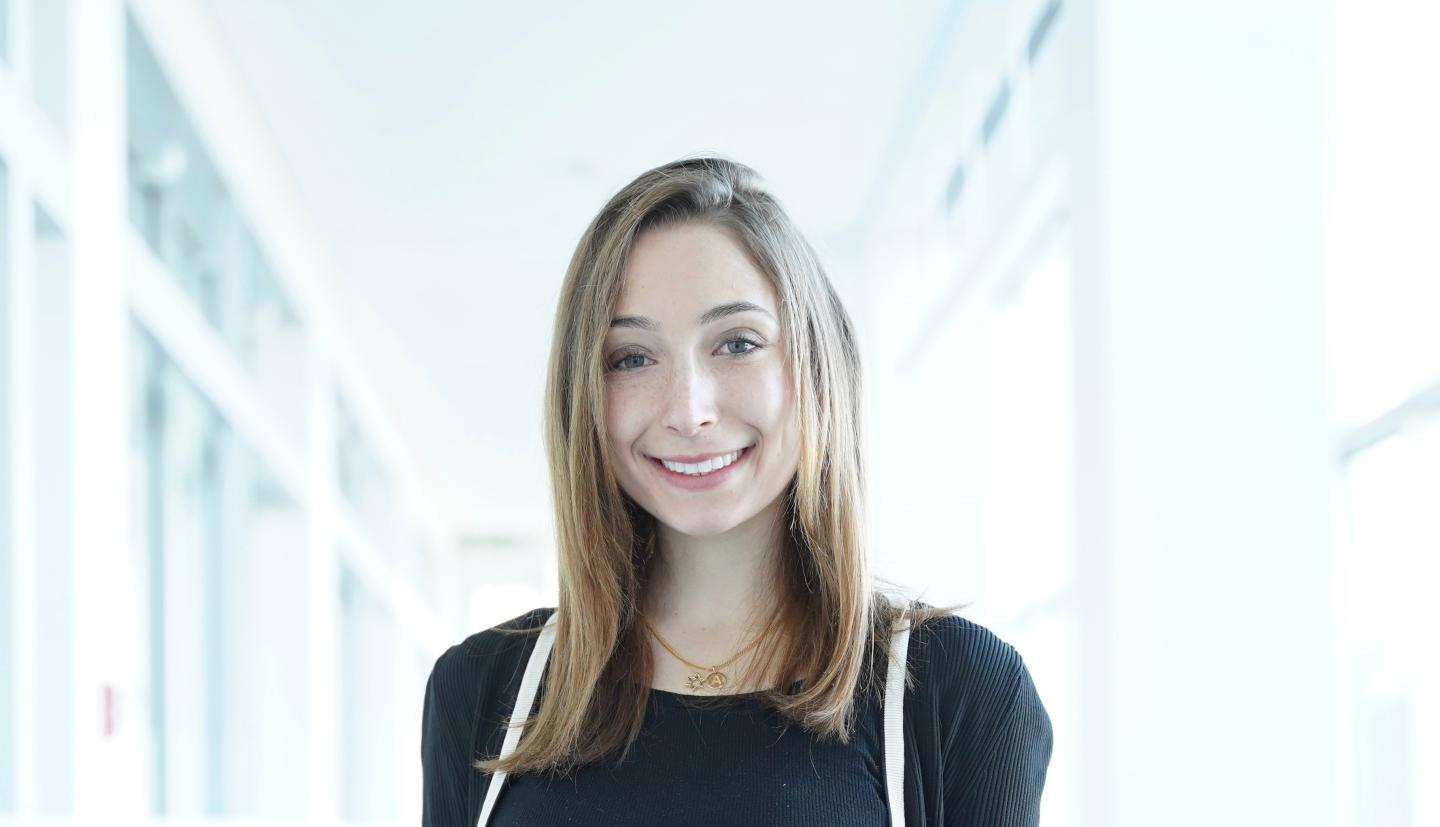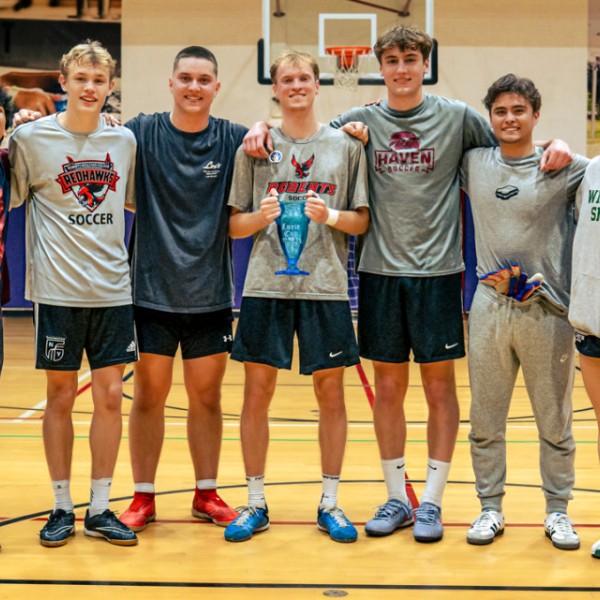Each summer, CALS Global Fellows sends students around the world to work and intern with a variety of host organizations. These positions enhance and complement their career goals and academic progress, while enriching their undergraduate experience with diverse cultural and international immersion. In 2020, fellows had to adapt to the COVID-19 pandemic by working virtually. International Agriculture and Rural Development (IARD) seniors Annie Weiss '21, Khusel Avirmed '21 and Matthew Sorge '21 were up for the adventure. Here, they share their experiences and give advice for those considering applying in summer 2021.

Annie Weiss '21
Relocated from a food-industry position in Italy to an Argentine agricultural consulting firm
What led you to apply to CALS Global Fellows?
Since starting my academic career at Cornell, I have always wanted to have the opportunity to take part in CALS Global Fellows. I wanted to be a part of Global Fellows because I am absolutely so passionate about traveling, working and living internationally. After college, I hope to work abroad. I've had previous but brief summer work/living experiences in Israel and Spain, but there is so much that I want to see! Global Fellows gave me that opportunity. Within CALS, I feel that the program is so well established and well known that it's a real honor to be selected.
Where and what were you supposed to do pre-COVID?
Pre-COVID, I was supposed to go to Italy to pursue a food industry-related internship.
What did your internship end up being?
Fortunately, Global Fellows "relocated" me to Buenos Aires, Argentina. An internship organizer there, called Puentes Abroad, placed me at Quarterra, which is a boutique agricultural consulting firm. I absolutely loved it!
How did you make the most of your internship? Did you learn any unexpected skills?
My boss, Monica, gave me tons of opportunities to expose me to her industry and to learn more. I always took her up on them! Some days, I would sit in on Zoom presentations that she was giving to the FDA or I joined in on conference calls with clients. My favorite extra experience was watching Monica look at dairy commodities. The semester before my internship, I took a supply chain class where we learned commodity market fundamentals, so it was pretty cool to see them used in real life.
What do you recommend to people doing CALS Global Fellows in the future?
No matter what, internships are a valuable experience. I felt that global fellows provided me with the best possible outcome given the circumstances. Besides, remote work is likely to be present in the future, so learning to work from home now will likely prepare you!

Tumenkhusel Avirmed (Khusel) '21
Relocated from Sathguru Management Consultants to become a lead researcher for a Thai algae-product company
What led you to apply to CALS Global Fellows?
I had known about the Global Fellows program since I was a freshman but couldn't really find an opportunity to apply for it until my junior year. I thought it offered a unique opportunity to pursue a professionally focused internship abroad. But I didn't know exactly what country I should choose. Then, during a winter break in junior year, I had a chance to go to India through my IARD 4020/6020 International Agriculture in Developing Nations class. For almost three weeks, our group visited various sites in states in Tamil Nadu, and I was introduced to Indian agriculture and its fast-growing agriculture sector. I met many Indian students and learned many things during the trip. After I came back, I decided to apply for the Global Fellows Program and for an internship specifically based in India. More specifically, I applied to the data analytics internship offered by Sathguru Management Consultants Private Limited since I knew already a lot about the company from people who I met during my India trip.
Where and what were you supposed to do pre-COVID for your internship?
My initial destination for an internship was in India. I was selected as a data analytics intern for the Sathguru Management Consultants company.
What did your internship end up becoming?
Due to Covid-19, however, my internship canceled officially two months before the school break. However, the Global Fellows Program organizing team offered me a virtual internship via a partnership with the Asia Internship Program. After several interviews with different companies, I chose to intern at EnerGaia Company. Based in Bangkok, Thailand, EnerGaia specializes in producing fresh and sustainable algae products. As a remote intern, I was responsible for leading their most recent research in developing a low-cost product to determine the optical density of spirulina bioreactors using machine learning and computer vision.
How did you make the most of your internship? Did you learn any unexpected skills?
There were many challenges that are inherent in working remotely. For example, the twelve-hour time difference plus working in a company in a different country were definitely some of the top challenges to adjust. Fortunately, I had built a close relationship with my supervisor who helped me on every stage of working remotely. I also learned a new skill in computer vision such as calculating normalized vegetation index using computer vision technologies. I am now writing my honors thesis to explore the relationship between livestock herd sizes and grassland health in Mongolia, where I am using the same technique I learned while working for EnerGaia.
What do you recommend to people applying for CALS Global Fellows in the future?
I would recommend students not be afraid to apply for programs that are new to them. If you find a topic that is aligned with your major and your goal, GFP would be a great experience for sure. But similarly, if you are not really certain what you want to do, I think the Global Fellows Program would be a perfect experience as well because you will explore your interest in different domains while in professional settings. And I think that a combination of flexibility and professionalism is pretty rare for undergraduate students.

Matthew Sorge '21
Relocated from agroecology research in Kenya to conducting research on added-value practices within East Africa
What led you to apply to CALS Global Fellows?
I had heard about the program since I had arrived at Cornell as a transfer student, so it was always on my radar. Once I started reading the placement descriptions, I got really excited. I love how the program has a built-in reflection process and offers the chance to think deeply about how we do development work. Additionally, I was really excited by the opportunity to work on a joint team of international researchers. I thought it would be an amazing learning opportunity and chance to connect with people from a diverse array of experiences.
Where and what were you supposed to do pre-COVID for your internship?
My original placement was with Manor House Kenya, which is an agroecological research institute that works with smallholders in the town of Kitale. At Manor House, Cornell students would form a joint research team with Kenyan students to study the effects on the food system of highly processed foods brought in from large supermarket chains. This is roughly what we would’ve studied but the team had some discretion on where we wanted to take the project once we got there. Basically, it would’ve been a joint Kenyan-Cornell student research team studying the local food system.
What did your internship end up becoming?
During this summer, I conducted a literature review on added-value practices within East Africa. Farmers are always looking for new ways to increase revenue and reduce risk. Through added value practices like processing maize for ethanol or cassava flour for enriched bread, farmers can reach a greater level of economic success. As an education institution, it is important for Manor House to provide farmers with a wide variety of added-value practices to choose from. By creating a literature review of practices in the region, I hoped to help them fulfill their commitment to sustainable production.
How did you make the most of your internship? Did you learn any unexpected skills?
I tried to think of it as a new opportunity to learn about something I never would’ve had the chance to study. Through the literature review process, I've learned much more about value addition and markets within East Africa. Moreover, I've also been exposed to a number of different journals and databases. I now feel more comfortable navigating the jargon and methods of developmental and agricultural science studies. Overall, I believe this process has made me a better researcher and given me an understanding of the knowledge gaps existing within value-addition. There are certain lessons that I never expected to learn — for example, how to conduct value chain analyses. Before this summer, I was not sure where I wanted to work within the food system, but I have learned about all the fascinating ways that family-run agribusinesses are transforming rural livelihoods. This placement has solidified my passion for a sustainable food production system where human well-being and environmental integrity are key priorities.
What do you recommend to people doing CALS Global Fellows in the future?
I loved the Global Fellows program because it operates under a service-learning philosophy that values reflection and preparation. The program structure enables you to think deeply about how we do development work, what motivates you to do this kind of work, and our own internal biases around development. Moreover, having the chance to learn about your placement country and develop a clear set of goals is really important and will improve outcomes for the people you are serving. I think it’s really important to think about if this type of service learning/development work aligns with your own personal preferences before joining the Global Fellows program.
This piece was prepared by Mary Beth Dale '21, a student ambassador for communication in the International Agriculture and Rural Development major.
Keep Exploring

News
Rohan Amin's Lurie Cup soccer tournament brings people together from Cornell and around New York state to support the pediatric hospital that saved his life.
- Global Development

News
Communities tracked by AARP's Livability Index made progress becoming more age friendly, but housing affordability and health care access remain challenges.
- Global Development

We openly share valuable knowledge.
Sign up for more insights, discoveries and solutions.


